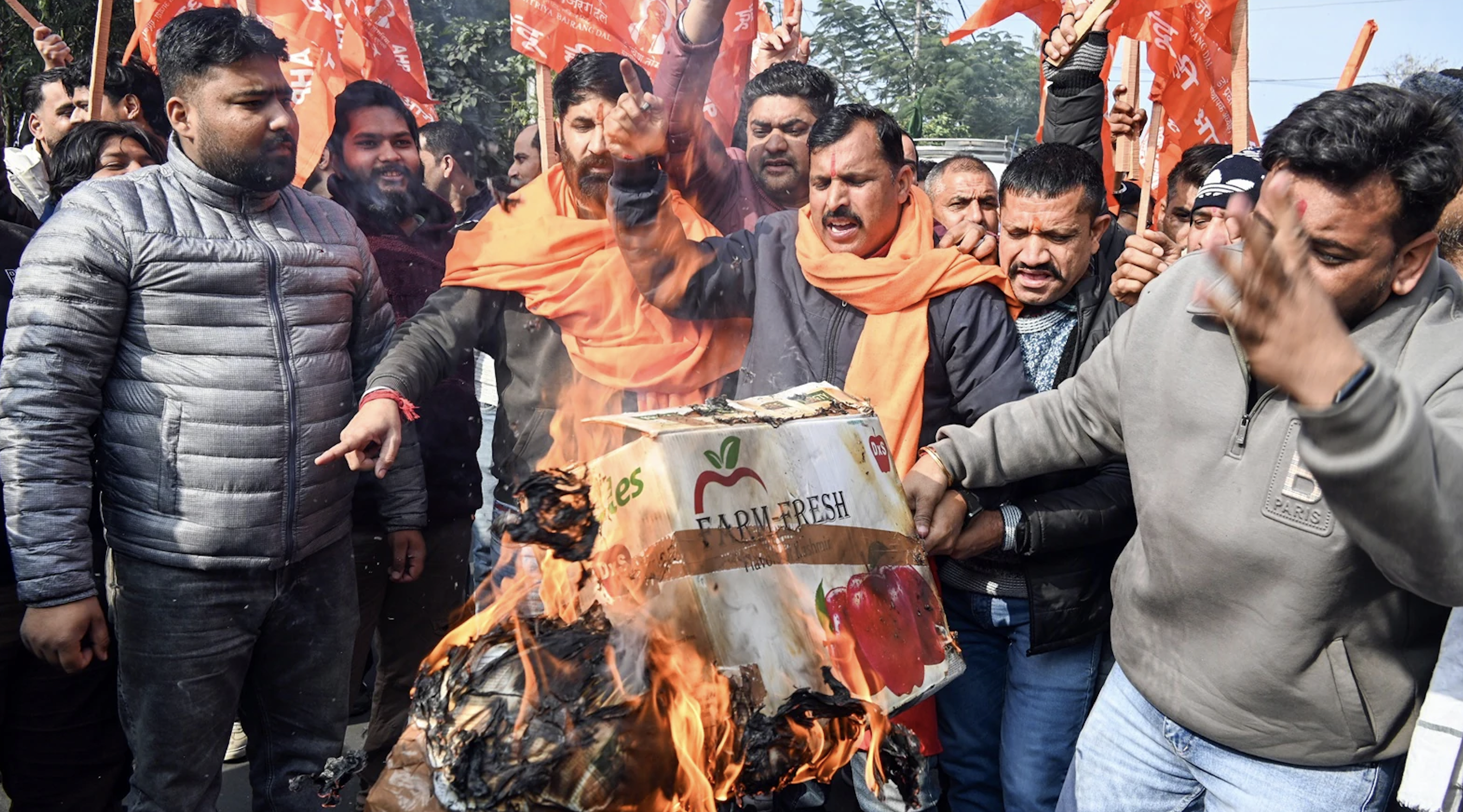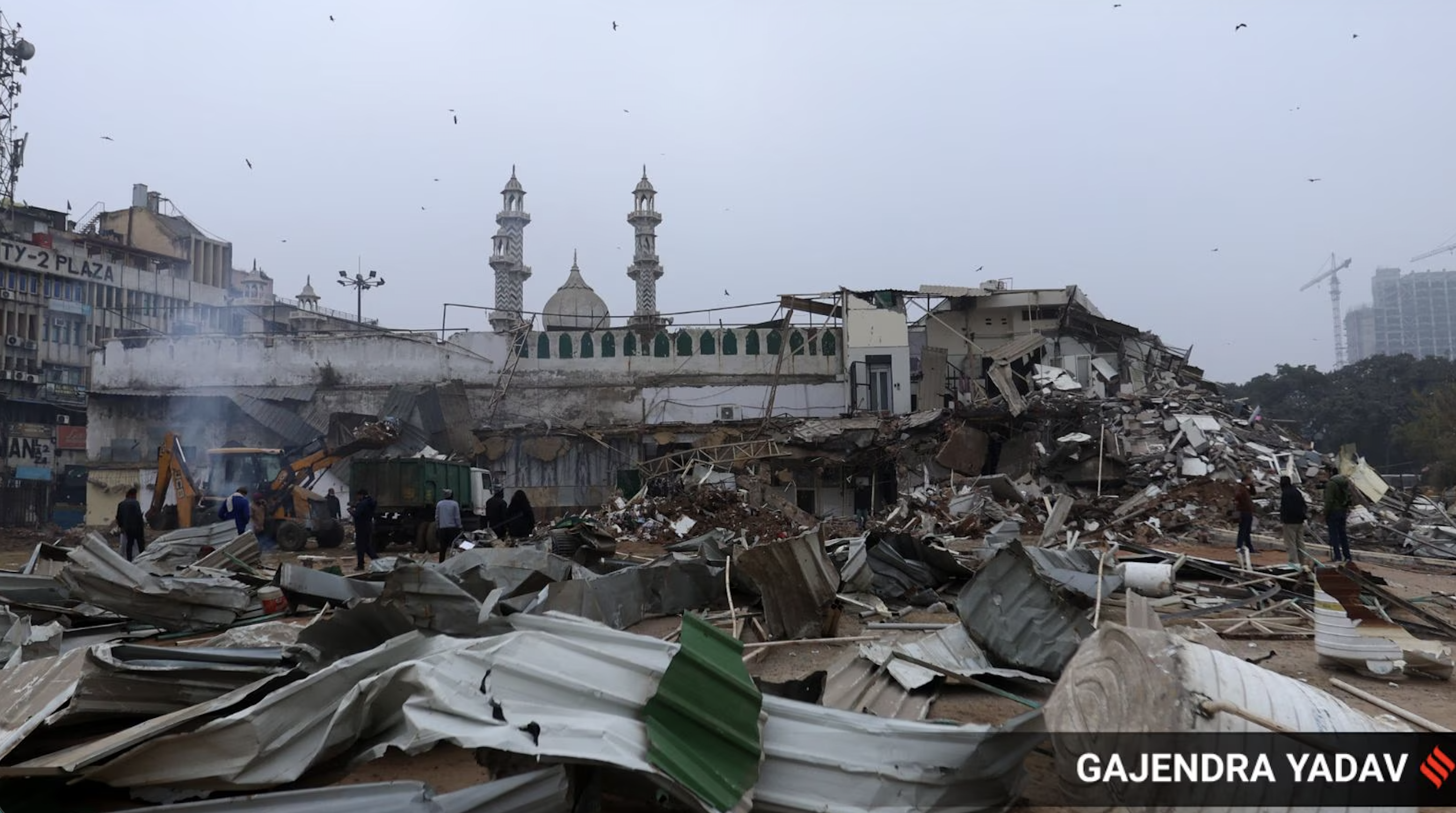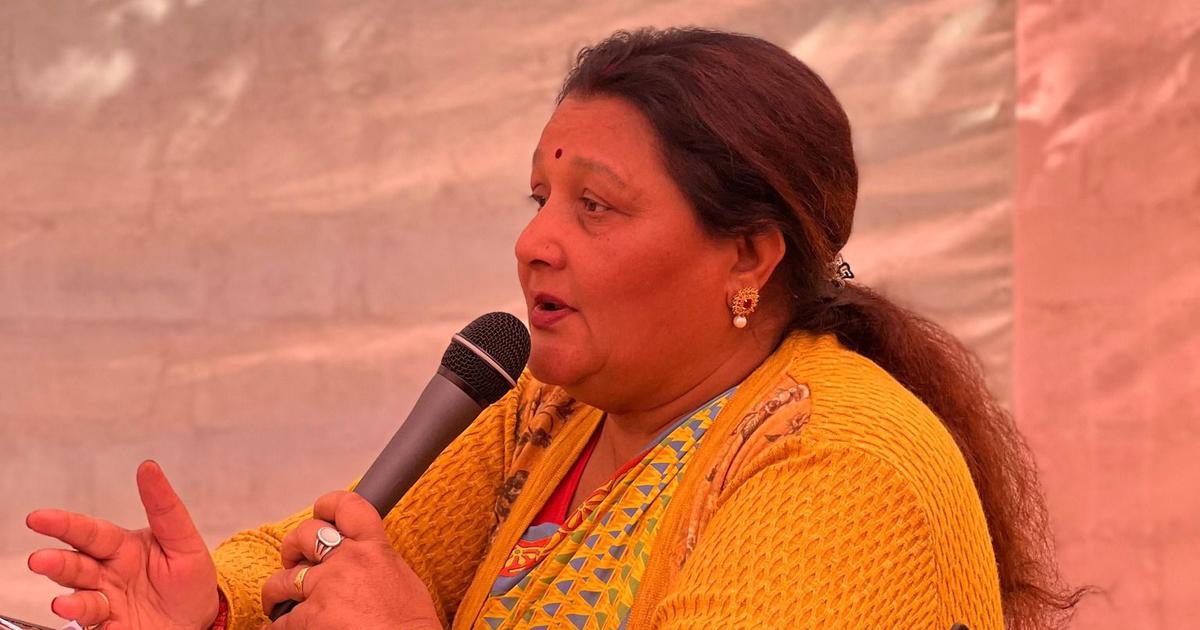By Basit Parray and Nuzhat Khan
There is a relationship of convenience between Bollywood and the Indian government. In recent times, movies dealing with polarizing contemporary political issues like “The Kashmir Files” (2022), “The Kerala Story,” (2023) and “72 Hoorain” (scheduled to be released later this year) have become a trend. These movies evidently model themselves as campaign runners for the 2024 general assembly elections for the ruling government. Propaganda films are, thus, mobilizing Indian voters, especially the youth, toward voting for vested political interests.
“Every five years, a new number of voters come into the fold and new ideologies develop through dissemination of such movies,” said Sayandeb Chowdhury an assistant professor for cinema and literature at Ambedkar University in Delhi.
“The movies have made it possible to tell the younger generation that nothing called Gujarat riots ever happened. At least, there can be a new film which will whitewash the crimes of Gujarat. The more cultural disconnect and historical disconnect there is, the easier it is to manufacture a narrative for the new voters, and here is where I think propaganda movies are actually playing a role,” he added.
Films create “an entire world, an entire history which is completely fake.” The narrative virtually influences people, and often physically translates into public disturbances, rumors, and riots, Chowdhury said.
Ajay Brahmatamaj, an author and film historian, told The Hindu, “There is no doubt that there was a Leftist influence on Indian cinema for decades after Independence. Now the BJP and the RSS want to use this soft power of the cinema to their advantage in a more direct fashion by creating narratives around their icons before the 2024 polls.”
The upswing of propaganda films has been notable in recent years. Vivek Agnihotri’s film “The Tashkent Files,” released in April 2019, revolved around the mysterious death of India’s second Prime Minister Lal Bahadur Shastri. The film alleged that Congress, the main opposition party, was responsible for Shastri’s death. The movie was released during the election campaigns for the 2019 Lok Sabha elections.
A biopic of Prime Minister Narendra Modi, starring Vivek Oberoi, was initially scheduled to be released during the same time. The Election Commission of India, however, postponed the release of the film. Despite facing a lawsuit filed by the Congress party, the film was eventually released. It was alleged that the film served as a promotional tool for the ruling party, highlighting the shortcomings of the opposition, including Singh’s perceived subservience to the Gandhi family. This raises the question of how “accidental” such film releases are in relation to elections.
Driven by the success of “The Kashmir Files,” the movies scheduled to be released in the lead-up to the 2024 elections include “Dr. Hedgewar,” a biopic on Rashtriya Swayamsevak Sangh (RSS) founder Keshav Baliram Hedgewar; “Main Deendayal Hoon,” a biopic on Hindutva icon Deen Dayal Upadhyay; and “Swatantrya Veer Savarkar,” a biopic on the champion of Hindu nationalist ideology, V.D. Savarkar, among others. These are a few examples of productions largely conforming to the dominant ideology of Hindutva nationalism as promoted by the ruling government.
One of the most prominent projects is “Bhagwa Dhwaj,” a high-budget historical epic delving into the origins of the RSS, an umbrella Hindutva group with close ties to the ruling BJP. The screenplay is by V. Vijayendra Prasad, an acclaimed screenwriter associated with successful films like “Baahubali” and the Academy Award-winning “RRR.” Prasad was nominated to the Rajya Sabha by the present BJP administration.
Scriptwriter and editor Apurva Asrani wrote in a tweet, “Overwhelmed by the pre-election line up of propaganda films. Never in my 23 [years of] career have I seen cinema used so cunningly to influence votes. And while I think censorship & bans are totally undemocratic, i [sic] wish some credible talents hadnt [sic] sold their souls to the propaganda mills.”
In November last year, Nadav Lapid, an Israeli film director and the jury head of the 53rd International Film Festival of India, described director Vivek Agnihotri’s film “The Kashmir Files” as “vulgar” and “propaganda.” Later Vivek Agnihotri wrote in a tweet, “Truth is the most dangerous thing. It can make people lie. #CreativeConsciousness.”
Despite facing criticism for his remarks, Lapid maintained his position on the film. In an interview with Israeli newspaper Haaretz, he said while making bad films is not a crime, this is a “very crude, manipulative and violent propaganda film.” Three other members of the jury supported Lapid. The only member who differed was Sudipto Sen, the maker of “The Kerala Story.”
Notably, the BJP government also backed the film. “The Kashmir Files is a bold representation of truth. It will work to make the society and the country aware in this direction that such historical mistakes are not repeated. I congratulate the entire team for making this film,” said Home Minister Amit Shah while meeting those who worked on the movie.
This development came a day after Modi in a parliamentary party praised “The Kashmir Files” and emphasized the role of the film industry in showing history. “The Kashmir Files” became the first Bollywood film post-pandemic to earn a profit of more than 2.5 billion Indian rupees ($30 million) while being made within a budget of 150 million rupees.
“There is a very distinct, top-down approach to propaganda films in India,” said film critic Tanul Thakur. “I watched ‘Kashmir Files’ a week after the film was released. I remember once the show was over, I saw a huge queue of people waiting to get into the theater. That never happens, I was like, ‘What explains it?’ It suddenly struck me that a day or two before, the movie was praised in the Parliament, and it was made tax-free.”…
This story was originally published in thediplomat.com. Read the full story here






